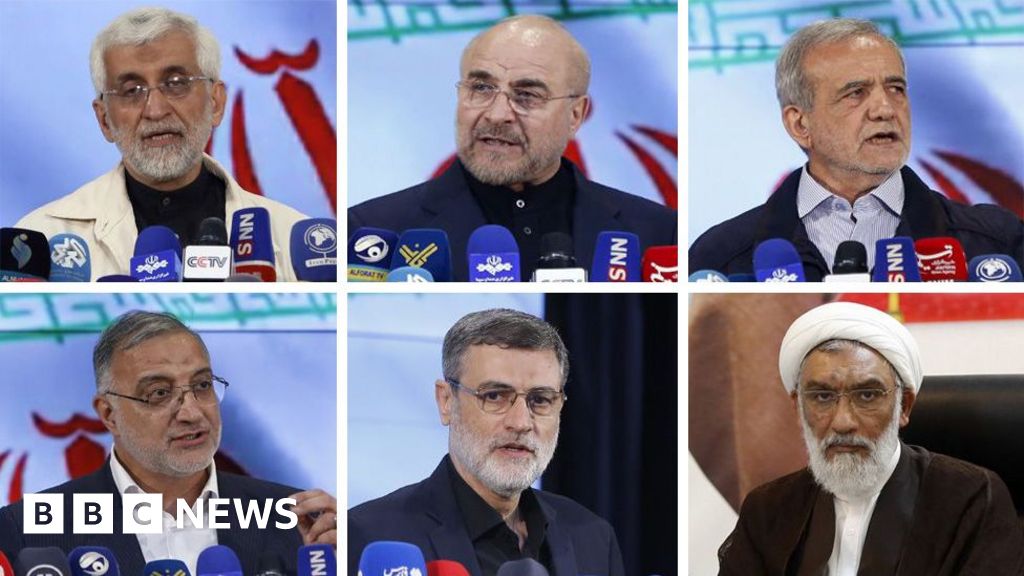World
Iran election: Hardliners dominate presidential candidates – BBC News

- Author, Kasra Naji
- Role, Special correspondent, BBC Persian
Iran’s Guardian Council has approved six candidates to run in this month’s presidential election.
Almost all of them are Islamic hardliners close to the thinking of Supreme Leader Ayatollah Ali Khamenei.
The constitutional body vetted the 80 people who registered to stand on 28 June according to their religious and revolutionary credentials.
One front-runner is Saeed Jalili, a former secretary of the Supreme National Security Council and nuclear negotiator who is thought to be the favourite of Ayatollah Khamenei.
In his time as head of Iran’s nuclear negotiating team, Mr Jalili repeatedly stonewalled the talks with five world powers while Iran advanced its nuclear programme.
He is seen by many as a largely tedious, hard-line Islamist ideologue with no executive experience.
The present Speaker of Parliament, Mohammad Baqer Qalibaf, is another candidate with a good chance.
He is a regime insider and former general of the Revolutionary Guards who has also served as the country’s police chief and mayor of Tehran.
One of that pair might decide to leave the race at the last minute in order not to divide the votes.
Three other candidates – Tehran Mayor Alireza Zakani, Vice-President Amirhossein Qazizadeh Hashemi and Mostafa Pourmohammadi – are also hardliners of various shades.
Mr Pourmohammadi is a former justice and interior minister who, along with Ebrahim Raisi, was a member of the so-called “Death Committee” that approved the execution of thousands of political prisoners in the late 1980s.
An exception to the hardliners is Massoud Pezeshkian, the member of parliament for Tabriz. A relative moderate, he has an outside chance of winning if turnout is very low.
Mr Pezeshkian could win the votes of many otherwise reluctant voters who may see a vote of him is a vote against the hardliners. He is also ethnically Azeri, and is thought to have the votes of the some in the north-east of Iran, where the bulk of the population are Turkish-speaking Azeris.
Leaving him in the mix might be a ploy to push up a turnout that otherwise could be historically low.
Two big names that have been denied a chance to run are the hard-line former president, Mahmoud Ahmadinejad, and Ali Larijani, a three-time speaker of parliament hailing from a deeply conservative religious background.
Their rejection shows how narrow the choices have become in the elections where the voters will have little choice but select among the few hardliners with whom the supreme leader feels he can work.
With such choice of candidates, it is unlikely that the election will generate much excitement among Iranians.
They will see this as another occasion where the supreme leader has engineered the elections to produce an outcome he desires – another hard-line president and complete control of the levers of powers.







:max_bytes(150000):strip_icc()/roundup-writereditor-loved-deals-tout-f5de51f85de145b2b1eb99cdb7b6cb84.jpg)


